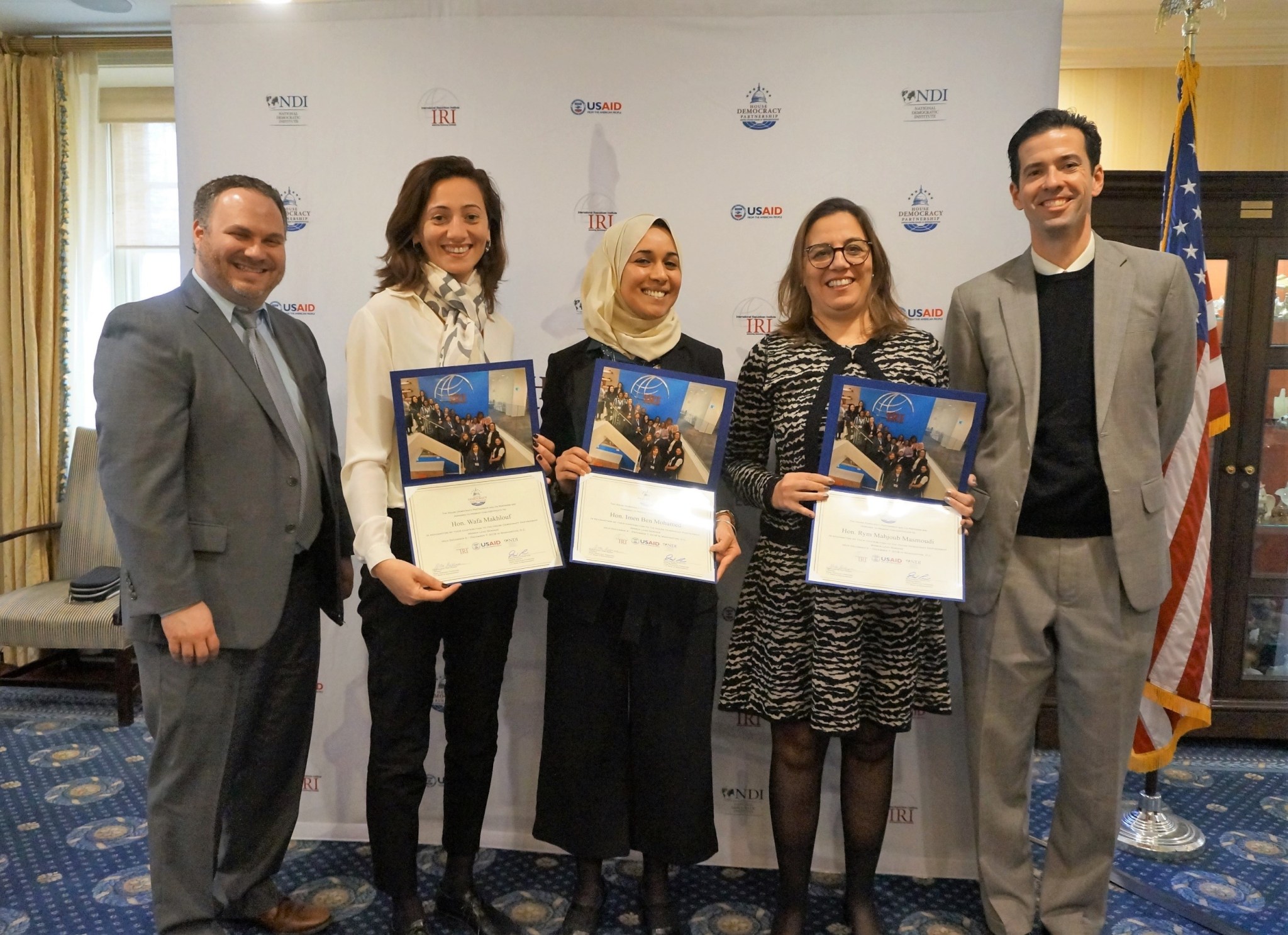
“Being here brings us another opportunity; not only to learn from one another but also to grow together,” Peruvian Vice President and Member of Congress Mercedes Araoz reflected as she addressed 22 women members of parliament from ten countries during the closing of the weeklong House Democracy Partnership Women Lead Seminar in Washington, D.C.
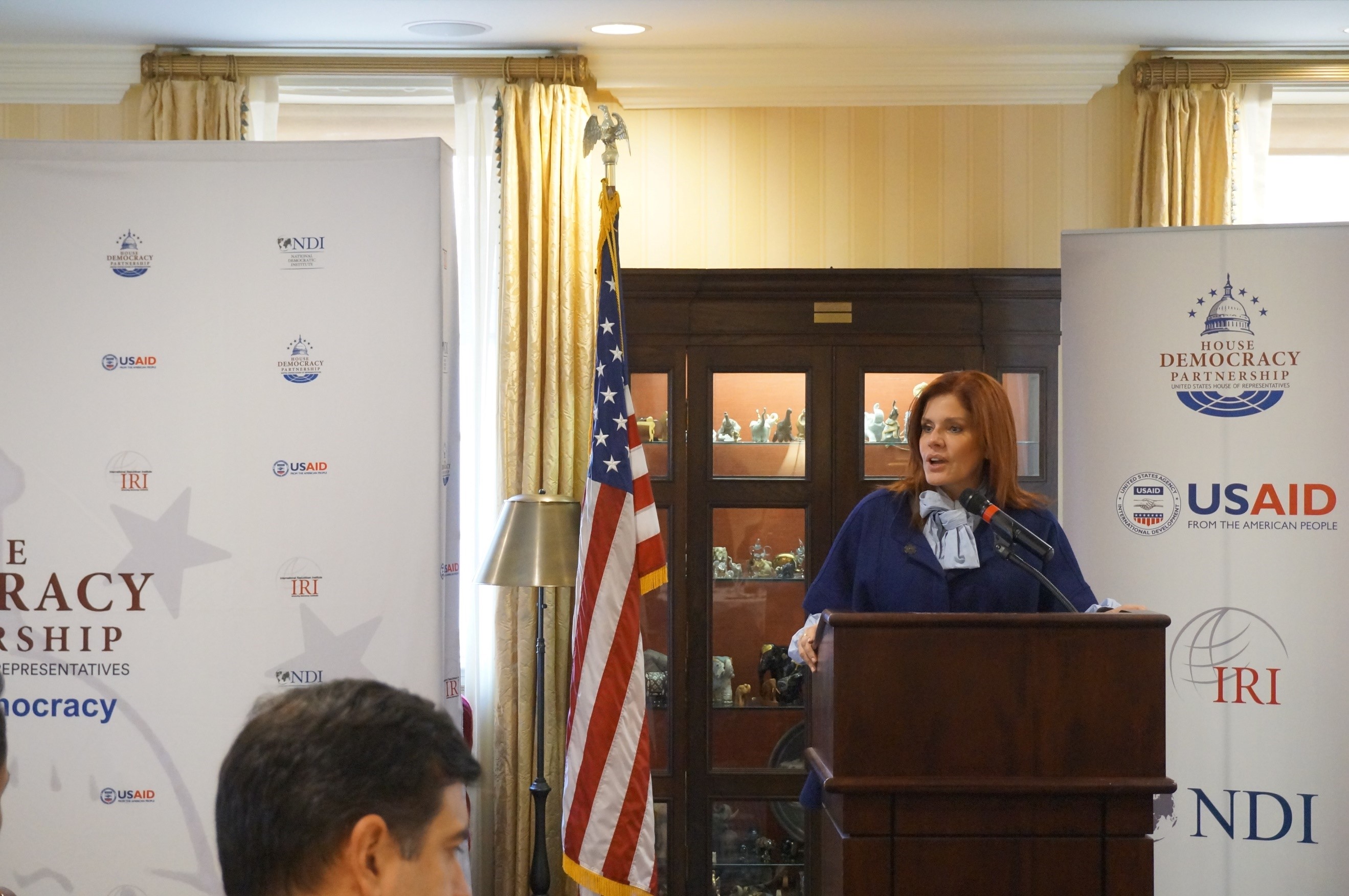
Vice President Araoz’s reflection exemplified the mission and purpose of Women Lead: gather a diverse group of women leaders, learn from each other’s experiences, discuss unique challenges in obtaining elected office and share best practices to overcome them. The gathering was a unifying experience at a time when women around the world are dramatically underrepresented in legislative bodies with an average of 23.9 percent.
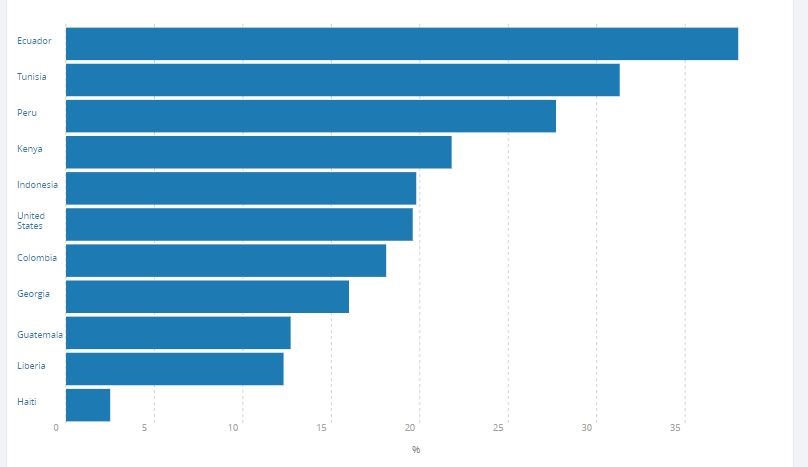
To combat this global trend, the International Republican Institute (IRI) and The House Democracy Partnership (HDP), a bipartisan commission of the U.S. House of Representatives that supports peer-to-peer engagement with 21 partner legislatures around the world, gathered women leaders for the week long Women Lead seminar. Women members of parliament from Colombia, Ecuador, Georgia, Guatemala, Haiti, Indonesia, Kenya, Liberia, Peru and Tunisia discussed ways to collectively improve inclusion and representation and work toward increasing the number of women in legislative bodies.
Through engagement with the U.S. Congress, country presentations, workshops and action plan development, participants had the opportunity to not only learn about ways to address issues facing women in parliament but build a network of support to continue the conversation beyond the week-long seminar.
The Haitian delegation, made up of two of the three women to currently hold office in the national legislature, discussed the difficulty and frustration in convincing a legislature dominated by men to update and enforce domestic violence laws. The delegation shared how such violence discourages women from participating in politics, furthering inequality. In response, other delegations shared their own experience in making the legal framework stronger and more effective. The Liberian delegation shared their recent success in passing a domestic violence law that protects the rights of women and girls.
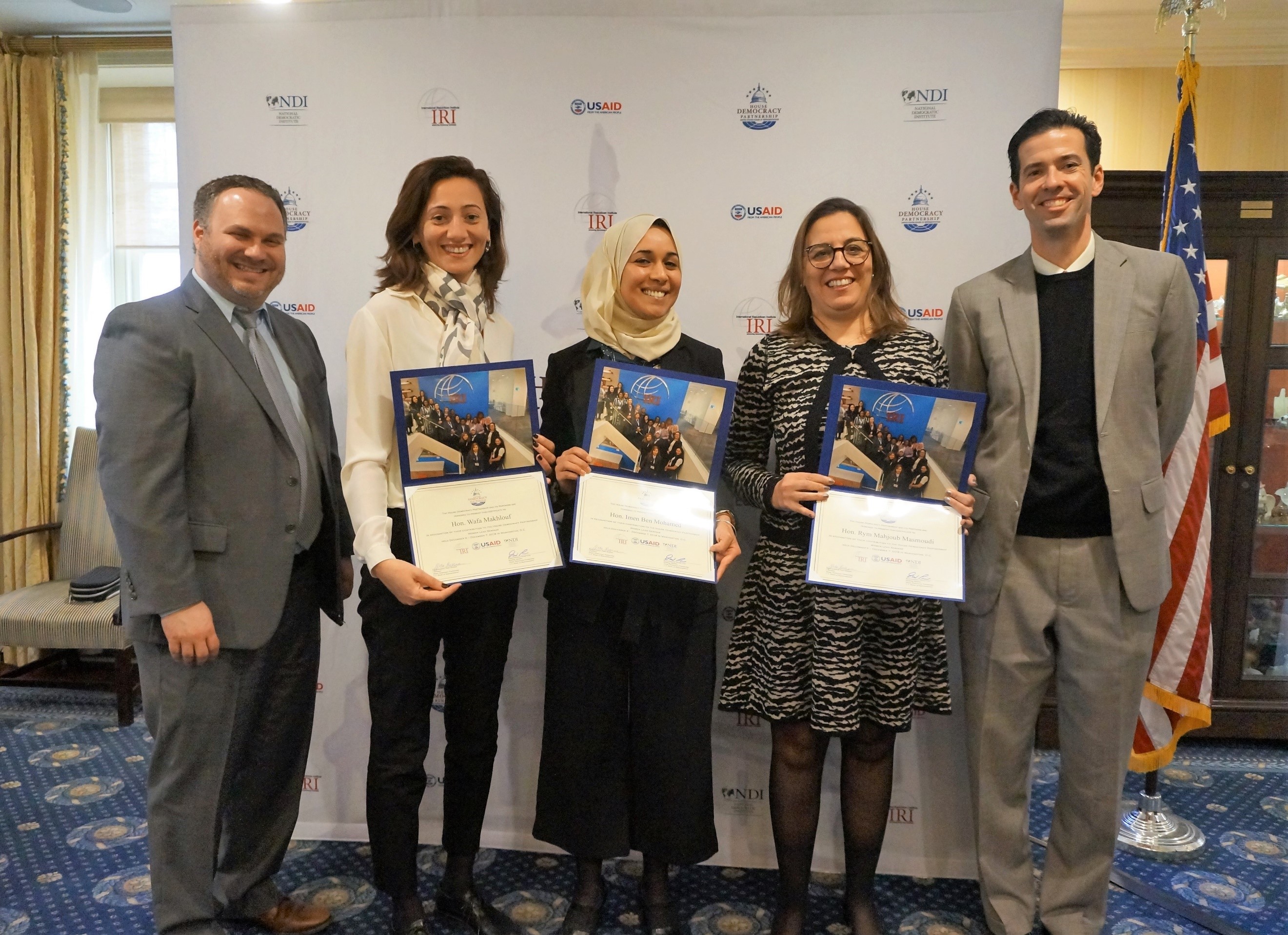
Similar exchanges centered on supporting women candidates, forming structured caucuses to advocate for inclusive legislation and how to better include women in the legislative process. A conversation with the Congressional Black Caucus Foundation highlighted the importance of working together, despite party affiliation, to advance common initiatives and encourage more women to run for office.
Consultations with U.S. lawmakers allowed delegates to learn from the U.S. experience. HDP Commission Member, Rep. Gwen Moore (D-WI) provided examples of how to overcome the adversity women inherently face when engaging in politics, such as working with advocacy groups and colleagues to advance inclusive legislation, empowering new generations of women leaders and reaching across the aisle to work together on issues that women face. Regardless of party, women face the same inherent adversity that is derived from a legislature that has historically underrepresented women. She cited that underrepresentation of women in the U.S. Congress has been a historical problem, but through hard work and a collective effort in getting women elected, the 116th Congress features more women than ever before.

“If you fortify the strength and dynamism of women, you strengthen the whole community,” said Rep. Moore during the closing of Women Lead.
Former HDP Chairman, Rep. Peter Roskam (R-IL), reflected on his time in the U.S. Congress and his experience working with members of parliament from around the world. He implored delegates to make the most of their unique opportunity as elected officials. He noted that despite challenges, they should work together and use their elected position to influence the legislative debate in a way that includes women and develops legislation that serves the interest of all constituents. Congressman Roskam noted, “You can have a profound impact on the direction of your country. It is a rare opportunity. If you are successful, you can send a strong message to the world.”
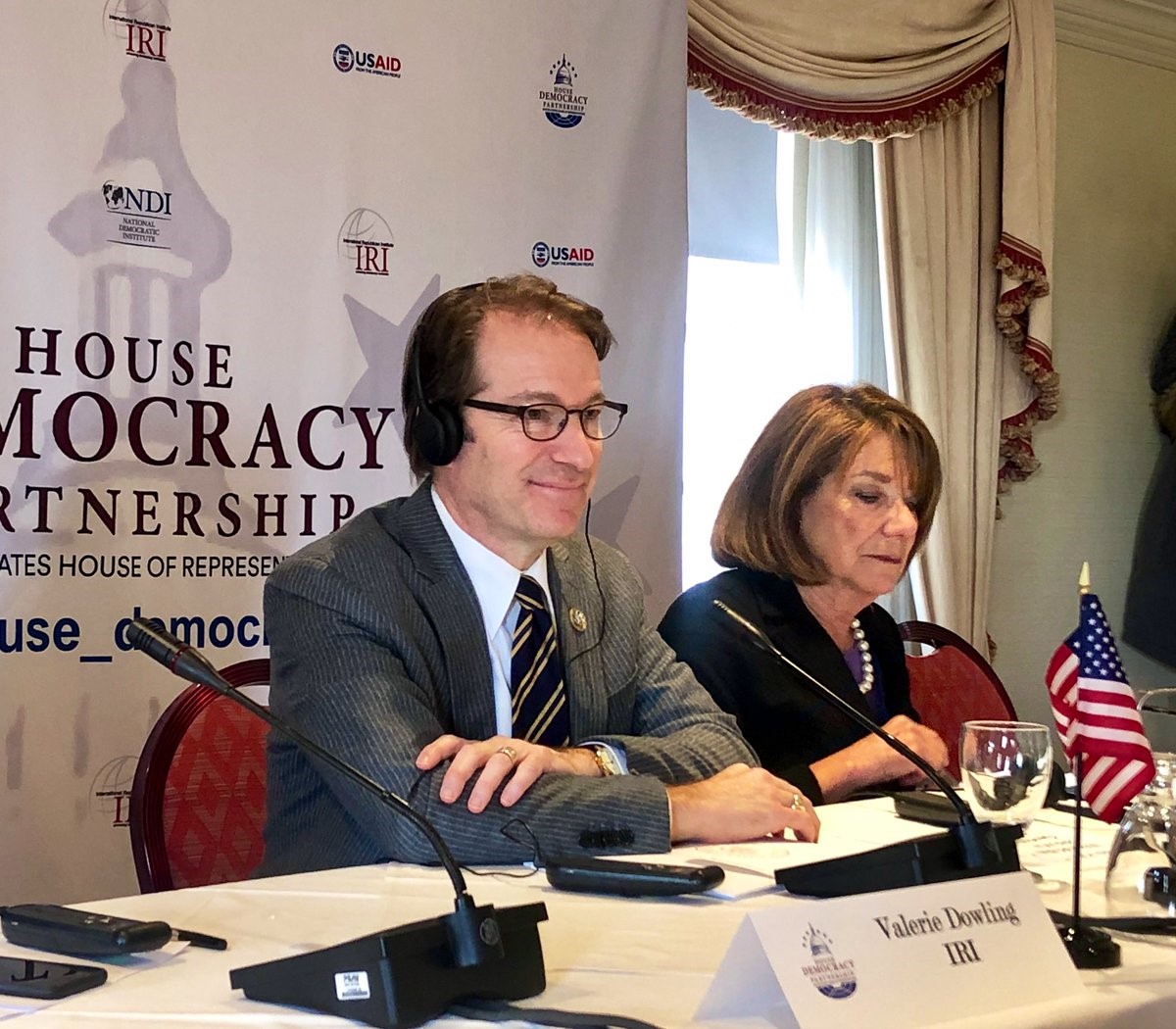
One word to summarize Women Lead: Inspiring. Twenty-two women from ten countries came together to determine how they can work together to increase representation in parliament and develop legislation that is responsive and beneficial for citizens. Through action plans developed during Women Lead, the delegates will be able to work in their respective legislatures to advance some of the ideas discussed in Washington. The challenges may seem insurmountable and the resources scarce, but by working together it is clear that women can and will lead legislatures around the world.
Similar to the White House’s W-GDP initiative, IRI and HDP believe that women and their representation in government are vitally important to self-reliant democracies and subsequently strong U.S. partners. A level playing field where women have an equal voice in a legislature is key to ensuring that all citizens are represented in legislation and that it represents the true voice of the people.